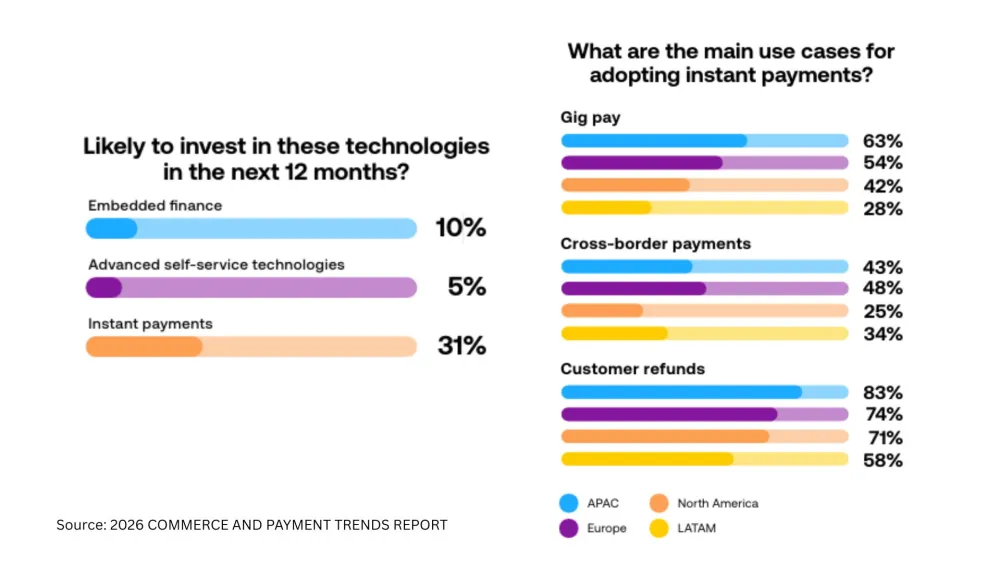
Credit card revenues threatened as Singaporean travellers shun usage
Card users turn to cash as they steer clear of lofty transaction fees and poor exchange rates.
Banks may have to rethink their reliance on credit card fees as a driver of revenues as technology savvy travellers are resorting to cash or alternate payment apps to avoid being slugged with high foreign transaction fees and usurious exchange rates.
In a report that should disturb all banks relying on overseas charges as a growing source of revenue, Transferwise said that using a credit card to pay for overseas purchases could cost an average Singaporean as much in fees as a one day holiday in Bangkok. The firm estimates a typical Singaporean would lose as much as $650 in additional fees and currency exchange losses.
One way Singaporeans are avoiding hefty credit card fees is to simply use cash, notes a separate study by J.D. Power.
Seventy percent of Singaporeans still prefer to use cold hard cash when making purchases abroad, 50% of the total overseas spending by Singaporeans are still cash-based, the report added.
Lofty transaction fees and poor foreign exchange rates were cited as the two main reasons why they avoid using cards. Singaporeans also fear fraudulent transactions overseas.
Such pain points manifest in the staggering $1.1b lost yearly to fees associated with overseas card expenditure, or 4% of the $27.3b estimated total overseas expenditure that Singaporeans make via cash and cards, a study commissioned by tech company TransferWise revealed.
“Singaporeans are avid travellers, but banks have not provided an affordable, transparent card option for spending abroad, either to individuals or businesses,” says Surendra Chaplot, Transferwise’s head of APAC card product. He noted that banks could still do better in the area of transparency.
“When you book a flight or a room, the airline or hotel tells you how much you are charged, but when you spend your card overseas, banks somehow believe they have the right to hide what they charge by putting their fees in the exchange rate mark-up. This may have been acceptable in another century or decade, but consumers in an age of transparency should and will reject it,” Chaplot added.
If cards don’t respond to consumers’ cries, there’s a missed opportunity for credit card issuers to fully capture overseas spending, according to Anthony Chiam, regional practice leader, Asia and Australia, global business intelligence at J.D Power.
“According to SingStat, Singapore residents on average travel twice a year. Our Study shows they spend approximately $4,800 annually during these trips, and that’s a missed opportunity for credit card issuers to fully capture overseas spending,” said Chiam. “It should be a cause for concern, given the rapid availability of other payment choices in the market.”
Right now, credit card issuers are banking on their various rewards benefits programs in the hopes of raising card usage numbers. These include air miles, cashback, rewards points, airport transfers, complimentary travel insurance, and shopping discounts, amongst others.
But just offering more benefits or higher reward points on overseas spending will not equal more usage.
Whilst 89% of cardholders are aware of the plethora of benefits that come with their cards, 72% use three or fewer of the benefits offered. However, it remains key to attract users: 64% of cardholders have used discounts or special privileges offered by issuers’ strategic partners.
With the benefits program a critical aspect of customer acquisition and engagement, issuers must make sure they remain relevant by keeping up with the changing preferences of cardholders, reported J.D. Power.
First choice is king
Keeping their benefits relevant to the preferences of the public will also help card issuers remain in the front of their wallet. Seventy seven percent of total credit card spending by Singaporeans are done through their primary card, the study by J.D. Power found. Meanwhile, 44% of surveyed card subscribers have only used their primary card in the past year, up from 27% in 2018. The number is even higher amongst millennials, with 48% transacting solely using their primary card.
Which is why ensuring customer satisfaction has become a major battlefield amongst Singapore’s eight major credit card issuers. Overall brand satisfaction was noted to strongly correlate to whether customers perceive that their primary card issuer is customer-driven, with results revealing that the top-ranked brands are also top rated in the metric of being customer-driven.
Credit card brand American Express, who led J.D. Power’s customer satisfaction survey, shared that enhancement of current credit card offerings and constant communication with customers remain their strategies to be consumers’ top pick.
“We consistently talk to our customers in the process of designing our products and services to make sure we’re giving them what they want, and this applies to all customer segments, including the younger customers,” a spokesperson from American Express said.
“For example, we have a benefits programme which enables our card members to receive savings and incentives for shopping, dining and travel, and can be received in the form of discounts, statement credits, and bonus points. We regularly communicate with our card members to remind them of such benefits and notify them of new offers and promotions,” the representative added.
Meanwhile, OCBC who ranked fourth in the survey couples its rewards programme with financing flexibility and fraud protection amidst the competition.
“We grant our credit card holders with benefits ranging from air miles, cashback, rewards points, airport transfers, lounge access, complimentary travel insurance, shopping discounts, concierge services, and special deals with various merchants,” said Vincent Tan, head of credit cards at OCBC.
An impending collapse?
Gearing up their credit card offerings becomes more important now more than ever for banks to avoid downturn predictions sighted in the turn of the century.
A study by payment solutions company Worldpay in 2016 forecasted that credit card usage in Singapore will collapse by next year as card use was slated for a major fall of 24 percentage points.
An analyst from market research company Euromonitor International noted that one possible reason for the growing animosity against cards is that certain demographics were not able to quickly adapt to alternative digital payment methods, reversing brands’ expectations for a 100% adoption in cashless payment schemes.
“Amidst the high penetration of smartphone usage in Singapore, the projected uptake of alternative payments and mobile wallets is not as quick as expected. There are still various sectors and demographics that are resisting adopting alternative digital payment methods as they still prefer cash,” Euromonitor’s analyst noted.
Alternatively, Euromonitor sees credit card transactions in Singapore to demonstrate an upward trend. Total card transactions, which accounts for all card payment types such as charge cards, debit cards, prepaid cards, and store cards, is projected to increase to $132.3m in 2020 from $128.7m in 2019. Similarly, total credit card transactions are expected to rise from $95.4m in 2019 to $99.5m by 2020.
Although adoption did not materialise as expected, Euromonitor still expressed optimism for the future of the cashless market in Singapore. “The country will continue to grow in the area of cashless payments, as cashless and card payments are projected to climb in the future,” the analyst said.



















 Advertise
Advertise













